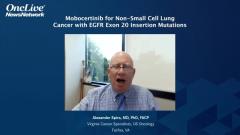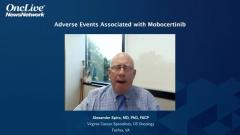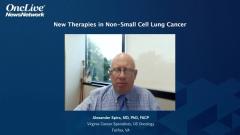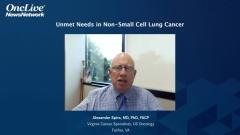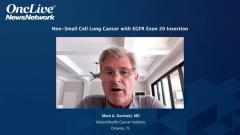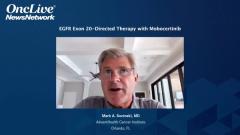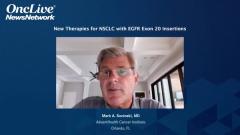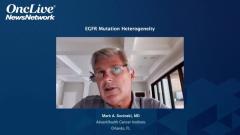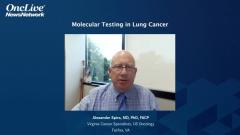
Unmet Needs in Non–Small Cell Lung Cancer
Unmet needs including strategies to manage brain metastases in non–small cell lung cancer patients are presented.
Episodes in this series

Alexander Spira, MD, PhD, FACP: We still have a ton of unmet needs in non–small cell lung cancer. There are still a lot of patients who don’t have a targeted therapy. We have a targeted therapy against KRAS G12C, but that’s a small minority; 40% of patients with lung cancer have a KRAS mutation, only 11% of them are G12C. We need newer drugs; we need drugs for the second line. The standard of care for the second line, outside of a driver mutation, is still docetaxel. The response rates are measured in the teens, and it’s a tough drug, so we still need a lot better therapy. There’s still continued room for improvement, despite the fact that lung cancer treatment over the last 5 to 10 years has changed so dramatically, even I can’t keep track.
Both mobocertinib and amivantamab have limited benefits against brain metastases, and we don’t know why. Certainly, with antibodies such as amivantamab, that’s not surprising; it’s an antibody, which may not penetrate the blood-brain barrier very well. We’re a little surprised that mobocertinib does not show a lot of CNS [central nervous system] penetration. That’s a concern because that’s not an uncommon place for both progression after treatment, as well as even at presentation. There are some data that some of the newer drugs may have better CNS penetration, but those numbers are still small. That’s clearly an area of unmet need with these molecules because [the brain is] an area [of concern] at both presentation as well as relapse after being on treatment for a while.
TRANSCRIPT EDITED FOR CLARITY


